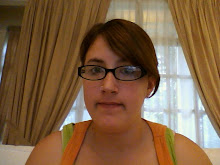Laundry detergent: 100 CFA
Bar of soap: 250 CFA
Dirty clothes: 0 CFA
Tap water: 0 CFA
Having the experience of washing clothes by hand and failing miserably: Priceless.
I have recently joined the "we do our laundry by hand" club.
And in this new club membership, I have found a deep respect and admiration for all the women and men around the world and throughout history who have every washed their clothes by hand. The following is an account of my first lesson in the ways of Senegalese laundry doing....
Seeing as I am in class every morning, I am restricted to doing my laundry at night, after I get home from school. So one evening, some ten days after I had arrived in Senegal, when most of my clothes were in desperate need of washing, I came home ready to attempt my laundry.
Having no idea what to do first, I approached my sister, Margo, saying "I'm ready, what's first?". She looked at me with a little amusment in her eyes, and got up. She left the room, and when she returned she had a bucket thing. "Clothes, first" she said. "Well duh," I thought, and took the bucket to my room and gathered all of my clothes. (Unmentionables are literally unmentionable here, so none of them were included in this washing extravaganza. If you would like to know how I wash my unmentionables, that's another story for another day) Okay, what's next? Margo asked me for 100 CFA (~$0.43 USD), and upon giving it to her, she gave it to Christoff who promptly ran across the street to a boutique to get me laundry soap. He returned with two packets of Madar, powdered detergant that is all-purpose and can be used for laundry, dish washing, or general cleaning. We lugged my clothes down the stairs to a faucet outside the bathroom, and started filling another bucket with water. "First, you seperate the lighter clothes from the darker ones," Margo said to me. Sweet, I thought, this is just like doing laundry at home!
Two buckets of water and packets of soap later, we each had a bucket of clothes and water in front of us. Oh and while all this is happening other members of the family are watching that day's entertainment of the toubab (white person) doing her laundry. Ignoring the audience, I tried to focus on the technique Margo was showing me. She had a bar of soap, and showed me how to lather the piece of clothing with it and then rub the fabric against itself to get it clean. Woah buddy, slow down a little. She did this with one of my shirts, then rung it out and put it in an empty bucket. "okay?" she asks. Ummmmm sure. As she rapidly started washing the clothes in her bucket, I clumsily tried to imitate the exact movements her hands were making. Let's just say that she finished her bucket before I finished mine, and mine had far less suds than hers. Whew, after that, we rinsed them all of their sudsiness, and squeezed out as much water as possible. Hint: the more water you squeeze out, the less there is to evaporate during the drying process.
Now with a bucket of wet and clean clothes, it was time to climb up to the third story to hang them. Trying not to think of how much my back was hurting from the washing activity, I reluctantly climbed two flights of stairs to the level where my brothers live. I had actually yet to visit this part of the house, because it's like my brothers' bachelor pad, and I just feel weird and imposing if I go up there. But the view is amazing from that high up, you can see downtown Dakar and practically the entire neighborhood. Back to laundry, Margo showed me how to shake eack piece out before putting it on the line. Thankfully she stayed to help, and in no time all of my clothes were blowing in the wind. Yay for a job well done! I immediately escaped to my room where I collapsed on my bed, thinking in disbelief about how people do this regularly.
Since that initial experience, I have washed my clothes ALL BY MYSELF! I'm pretty sure they aren't as clean as they would be if Margo helped me, and it definitely took a lot longer to do, but in the end they have been rid of their sweaty stench. I used to think that laundry day was rough because I had to lug my clothes down four flights of stairs (in the dorms) and fight for the usage of the laundry machines. But now I realize that I was a naive and ignorant soul. Never again will I complain about having to do laundry in America, not when there's a washing machine involved...
